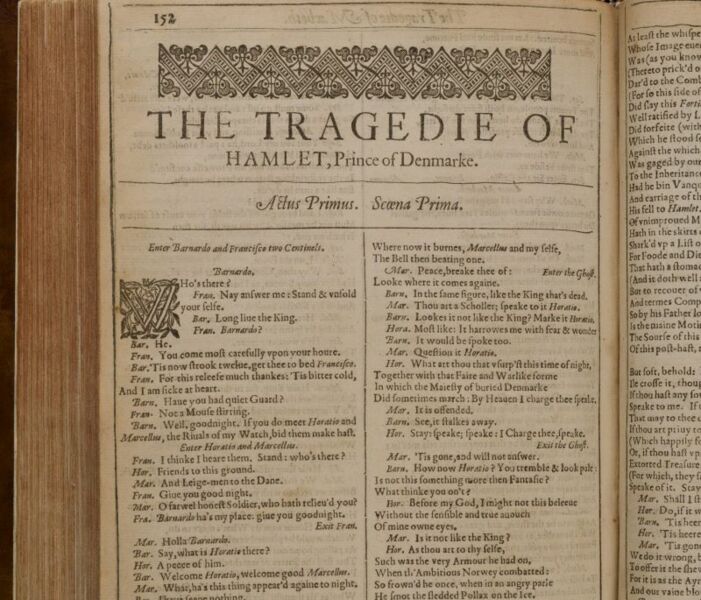

The Poet & the Word Catcher
The Power of Original Texts
Each week, I run a session for Sixth Form (VI Book) pupils in the Fellows' Library, during which we handle and discuss rare and antiquarian books from the College’s collection. This year, the texts we have looked at have ranged from medieval manuscripts to a first edition of Keats’s 1820 poems.
In the autumn term (Short Half) this year, though, we focussed on Shakespeare, and one of the outcomes of this is the current exhibition in Treasury. We are very fortunate to have in our holdings a copy of Shakespeare’s First Folio (1623), of which only 235 survive today. Published seven years after Shakespeare’s death, roughly a third of his plays are published for the first time in its pages, including Julius Caesar, Macbeth and Twelfth Night. There is always a frisson when pupils turn its pages for the first time.
The sessions also help to put this book in context. We look for example at the source material that Shakespeare read, in the editions that Shakespeare would have read them: North’s Plutarch (1577) and Holinshed’s Chronicles (1587), as well as a slightly later edition of Golding’s Ovid (1612).
Looking at Ben Jonson’s Folio (1616) allows us to think about why Shakespeare seemed so indifferent to preserving his plays in print when his great friend and rival was determined to get his own work published. Shakespeare’s name is listed as an actor in a number of the productions contained in Jonson’s book too, which leads on to discussion about the make-up of early modern theatre companies.
Some of the material from the eighteenth century, including Lewis Theobald’s extensively annotated copybook of Shakespeare’s plays (1733), allows us to think about what goes into editing Shakespeare’s plays, and to ask questions about the complex nature of authorship in the context of early modern publishing and theatrical production.
It is a privilege to have such ready access to this material and a thrill to be able to teach with it.

Shakespeare Exibition
2023 is the 400th anniversary of the publication of Shakespeare’s First Folio, one of the most influential books of all time. As part of a worldwide celebration, we are exhibiting the College's own First Folio in Treasury, alongside later editions of Shakespeare’s works and books by some of his contemporaries. The exhibition, Folio 400 - Printing Shakespeare runs from 20 April to 20 November 2023. The Treasury is open every day, 2 - 4pm and entry is free.
New publication
Dr Latter has written a pamphlet, Shakespeare, Pope and Theobald in the Fellows' Library, on the school's collection of these authors' works and how they are used in teaching at Winchester College. You can view the pamphlet here.

 Head back to stories
Head back to stories